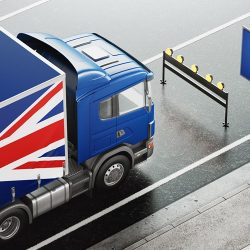The Brexit transition period is due to end on 31 December 2020 and this means that the process for exporting goods to the EU will change from 1 January 2021.
Current guidance published by HMRC states that from 1 January 2021, businesses will need to make customs declarations when exporting goods to the EU. This is what you currently have to do if exporting goods to any country outside of the EU, including Switzerland, Norway, Iceland and Liechtenstein.
Businesses, especially those that currently only trade with EU should be making the necessary preparations for how they will trade with the EU next year. Businesses can make customs declarations themselves or hire a third party such as a courier, freight forwarder or customs agent to do the paperwork.
HMRC has published guidance to help those exporting goods to prepare.
Some important points to bear in mind from 1 January 2021 are as follows:
- Make sure you have an EORI number that starts with GB. You will need an Economic Operator Registration and Identification (EORI) number starting with GB to import/export goods from 1 January 2021.
- Check the rules for your type of goods. For example, check what import/export licences or certificates you need, check the labelling and marketing standards for food, plant seeds and manufactured goods and check the rules for importing/exporting alcohol, tobacco and certain oils.
- Find out if you can charge VAT at 0% on goods exported to the EU.
- Check if the EU business you're exporting to is ready. The EU business importing your goods will also need to prepare for 1 January 2021 changes.
Note, this guidance applies to England, Wales and Scotland. Separate guidance on moving goods into, out of and through Northern Ireland is expected to be published shortly.
